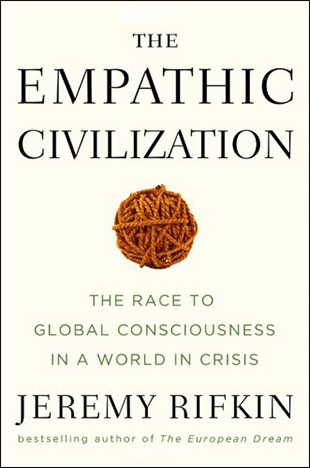Jeremy Rifkin is a controversial public intellectual whom The New York Times has called “a social and ethical prophet.” He is president of the Foundation on Economic Trends and a senior lecturer at the Wharton School's Executive Education Program. Among his bestselling books are The End of Work, The Biotech Century, The Age of Access, and The Zero Marginal Cost Society.
According to Rifkin, American culture has turned into a heated battle between empathy (increased human connection) and entropy (the breakdown of the planet’s well-being). With great insight, he singles out an event on Christmas Eve in 1914 when the enemies on the front in World War I set down their weapons and celebrated peace. Behind this act of beauty and ethical power lies empathy as a healer and bridge-builder. (See excerpt.)
Striding through three sections, Rifkin reveals why so much goodness is expressed by humankind, making us "a fundamentally empathetic species." In another section, we learn of empathy’s growth and varied stages of development through the centuries. The final part of the book unravels ways in which the "Age of Empathy" is eclipsing the "Age of Reason" and setting humanity on a new adventure of global consciousness.
"Empathy conjures up active engagement — the willingness of an observer to become part of another’s experience, to share the feeling of that experience," writes Rifkin. This important human quality can help us muddle through the political messes and the widespread misery of our times brought on by greed, selfishness, and a stubborn refusal to deal with the ecocide we have brought down on ourselves. Rifkin makes a good case for adopting global empathy as a survival skill to save both us and the planet.
